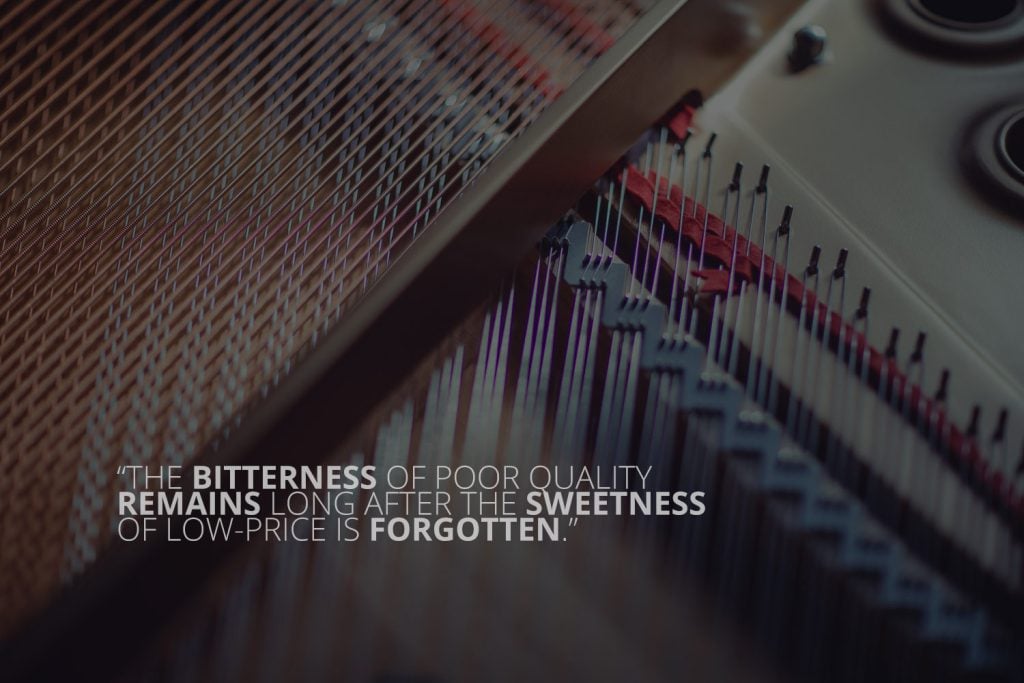Let me tell you about the first digital camera I ever owned. It was a Sony point and shoot camera, but it wasn’t one you could just slip in your pocket. It had this big honkin’ lens sticking off the side. It had this fancy swivel action so that you could point the screen in different directions. It was silver, with a pop up flash that looked impressive compared to the other digital cameras. I was just a dumb kid, of course, and I wanted this camera for two reasons. One, it looked impressive. And two, it was much cheaper than the other cameras.
I fantasized and dreamed about what I could do with this camera, excited I would finally have one of my own, until one day it arrived. After a few months, I was totally disappointed. It didn’t do the things I’d assumed it could do. The impressive look no longer felt so impressive to me. I didn’t end up using it very much. I also didn’t have all that money I’d saved to buy something I really wanted to use. I definitely felt bitter about it.
I read a quote the other day which reminded me of that story. It read:
“The bitterness of poor quality remains long after the sweetness of low-price is forgotten.”
The “bitterness” of poor quality might seem like a melodramatic term if you’ve never spent what felt like a life changing amount of money on something you ended up regretting. I’d spent all my savings on that camera, so at the time, it was a pretty life changing amount of money for me. So it’s not like the bitterness you feel when a sweater you’ve only owned for two months starts to come apart. We just reach into the drawer and we pull out another sweater. The “bitterness” starts to disappear as quickly as other conversations and experiences can pile up on top of it. Like mine did when I eventually saved enough money and bought a new camera.
The bitterness this quote refers to is the kind of bitterness you’d feel about getting an amazing deal on an expensive car that starts falling apart right away. Or an inexpensive house that had more egregious problems than the inspection turned up. Or a free roller coaster ride that left you paralyzed from the waste down. These are decisions that you don’t just make and move on from, regardless of the outcome. We’re talking about decisions that continually remind you that you’re unhappy with that decision. The house you have to live in all the time. The car that has to get you everywhere you go. The legs you walk on every day. Or in the case of some adolescent version of myself, the camera you take pictures with.
I think the meaning of this is more useful than just another way of saying “you get what you pay for”, though. I think it’s saying something about how we like to make decisions, and how we tend to disproportionately value what we have now over what we will one day want. It also touches on that wonderful sense of energy that comes from keeping more of your money than you thought you’d be able to. And it warns of the way we’re prone to drag ourselves through the mud when we’re disappointed with our decisions.
Throughout our lifetimes, we’re going to buy some stuff. Some of it will be more significant to the rest of your life than others. A lot of it will be for totally forgettable sums of money. Some of it might cost more than your whole college education. We’re going to buy cars, and houses, and I’m going to keep buying cameras. Those significant things that will follow us around and remind us every day, those things should not be places to compromise our deeply felt needs and desires for the sake of a good deal. It’s rolling dice. It’s getting an emotional boost by avoiding letting go of an uncomfortable amount of money, and then surrendering ourselves to whatever the outcome might be.
While hiring a photographer may not be on par with buying a house, depending on why you’re hiring that photographer, the stakes may be just the same. A couple who gets a good deal on wedding photography, but hates the photos in the end, will never feel happy about saving that money after that initial rush is over.
So, if there’s something you need to buy, and especially if you’re hiring a wedding (or funeral) photographer, try to think about whether you’ll feel lastingly bitter should you discover what you bought is of poor quality. If so, don’t compromise there. Make your choice based on the quality you expect, not on the price you want to pay.

